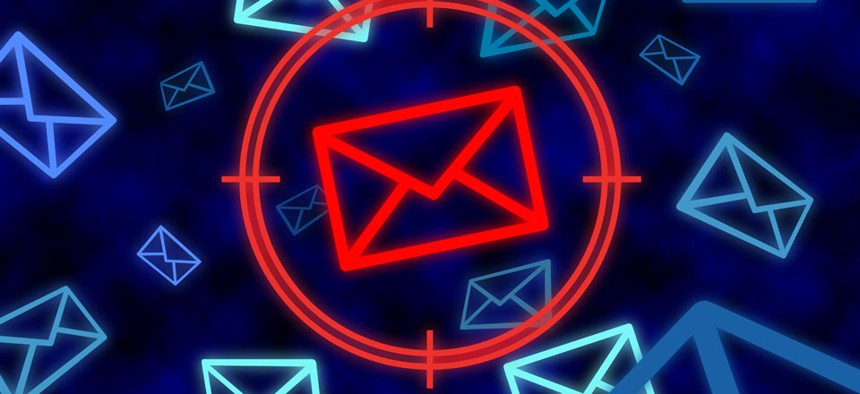Lawmakers Debut Bill to Require Search Warrants for Email Snooping

Balefire/Shutterstock.com
Mirror bills to update the Electronic Communications Privacy Act will land in both chambers on Wednesday.
House and Senate lawmakers are expected to reintroduce bipartisan legislation on Wednesday that would require law enforcement to obtain a search warrant before accessing the content of private emails.
The Email Privacy Act, sponsored by Reps. Jared Polis and Kevin Yoder, is landing with more than 220 cosponsors, meaning it already has the backing of more than half of House members. Sens. Patrick Leahy and Mike Lee are also slated to reintroduce their mirror version of the bill, though it was not immediately clear how many cosponsors they had on board.
The companion bills, which seek to update the controversial 1986 Electronic Communications Privacy Act, or ECPA, enjoyed widespread support last year among the tech industry and privacy advocates, but failed to gain enough traction to move forward in the waning months of 2014.
Federal law currently does not require authorities to get a warrant to read emails or other communications stored online—such as documents kept in a cloud service—if they are more than 180 days old. Instead, only a subpoena is necessary.
Boosters of the bills say that they are only looking to modernize a severely outdated law that was crafted long before the development of most of today's Internet services. While EPCA places warrant limitations on phone wiretaps and the surveillance of some digital communications, emails are often considered exempt.
"Americans are stunned, my constituents are stunned, when they hear that without a warrant, without notice, without due process, that [law enforcement] can look at their emails, look at their content in the cloud … to build a case against them," said Yoder, a Kansas Republican.
Polis, a Colorado Democrat, added he was confident the bill could accrue the support of two-thirds of the House and ultimately force leadership to bring the bill up for a suspension vote.
Alternatives are already in the offing. Earlier this week, Rep. Zoe Lofgren, D-Calif., and nine cosponsors introduced her own bill that would also require a warrant to access email content. But unlike the offering from Polis and Yoder, Lofgren's bill would also force authorities obtain a warrant before they could compel a service provider to hand over a customer's location data.
Yoder and Polis declined to call Lofgren's offering a competing measure—and both voiced support for her desire to require warrants for location data.
Lofgren also attempted to downplay the suggestion that she was offering rival legislation.
"[Polis and Yoder] have made an assessment that this is the best they can do," Lofgren said. "We'll find out if they're right. I'm not hostile to their efforts."
Still, Polis and Yoder's bill will also have to jockey with a crowded plate of digital privacy bills that are being introduced in the new Congress. The measure may also risk being shelved in favor of efforts to reform the National Security Agency bulk surveillance of U.S. call data—a high-profile issue that faces a set deadline when the Patriot Act expires later this year.
"We see this issue as, frankly, much worse than the NSA scandal," Yoder said. "There are people who are on both sides of the NSA bill who are united on our bill."
Yoder added that already the bill was facing "significant opposition" from the White House, which has been reluctant to support ECPA reform.
Last month, Apple, Google, and more than 70 other tech companies and digital-rights advocacy groups sent letters to the Senate and House Judiciary leaders last week urging swift passage of the bills.
(Image via Balefire/Shutterstock.com)
NEXT STORY: Secret Service needs a CIO






